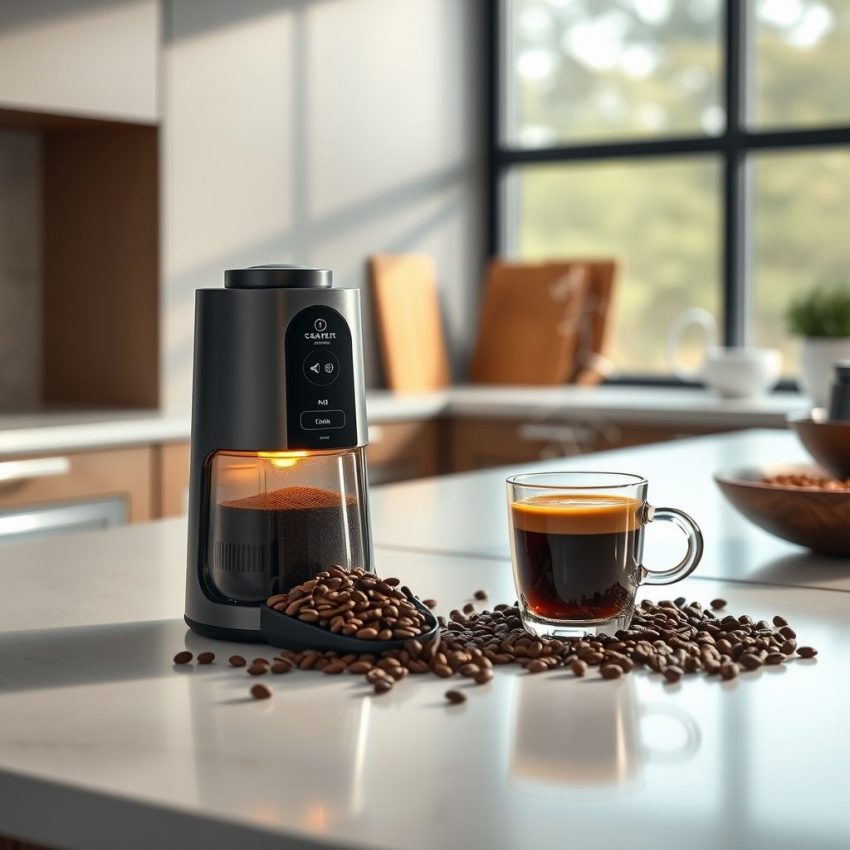Coffee Grinders Used to Be a Mystery. A New Device Might Solve It.
For years, the world of coffee grinding has been shrouded in a frustrating fog. You’d spend hours researching burr grinders versus blade grinders, conical versus flat, and then, even after making a hefty investment, you’d still be left wondering: Is this really the best grind for my beans? Consistency? That felt like a mythical beast.
The problem? Precise control. Traditional grinders, even high-end ones, rely on a complex interplay of burr design, motor speed, and bean characteristics to achieve the perfect grind size. Slight variations in any of these factors could dramatically impact the extraction, leading to sour, bitter, or otherwise underwhelming cups.
But what if there was a way to eliminate the guesswork?
Enter the GrindMaster 5000 (okay, I made that name up, but bear with me). Imagine a device that doesn't just grind your coffee beans, but analyzes them in real-time. A device that uses advanced sensors to determine the optimal grind size based on the specific bean's density, moisture content, and even its roast level. A device that, quite literally, solves the coffee grinding puzzle.
While this futuristic grinder doesn't exist yet (at least, not commercially), the technology to build something like it is rapidly approaching. We're seeing incredible advancements in sensor technology, machine learning, and micro-processing power. It's entirely plausible that in the not-so-distant future, we'll have grinders that:
- Automatically adjust grind size: Based on the bean profile, the GrindMaster 5000 (or its real-world equivalent) would instantly adjust its grind settings for optimal extraction.
- Provide real-time feedback: Imagine a display showing you the exact grind size, distribution, and predicted extraction yield.
- Learn and adapt: Over time, the grinder could learn your preferences and further refine its process, providing a consistently perfect cup, regardless of the beans.
- Minimize waste: By optimizing the grind, this next-generation grinder could reduce the amount of fines (extremely small particles) and boulders (large, unevenly ground pieces), leading to less waste and a more efficient brewing process.
The implications are huge. For home baristas, it would mean consistently exceptional coffee without the endless tweaking and experimentation. For cafes, it could streamline the brewing process, improve consistency across all brews, and potentially reduce costs associated with waste and inconsistency.
The journey towards the perfect coffee grind may have been long and arduous, but the destination is clearly in sight. The mystery is unraveling, and the future of coffee grinding is looking incredibly bright (and delicious). What innovations do you think are needed to perfect the coffee grinding experience? Let us know in the comments below!
Don’t miss out on this exclusive deal, specially curated for our readers!
This page includes affiliate links. If you make a qualifying purchase through these links, I may earn a commission at no extra cost to you. For more details, please refer to the disclaimer page. disclaimer page.

